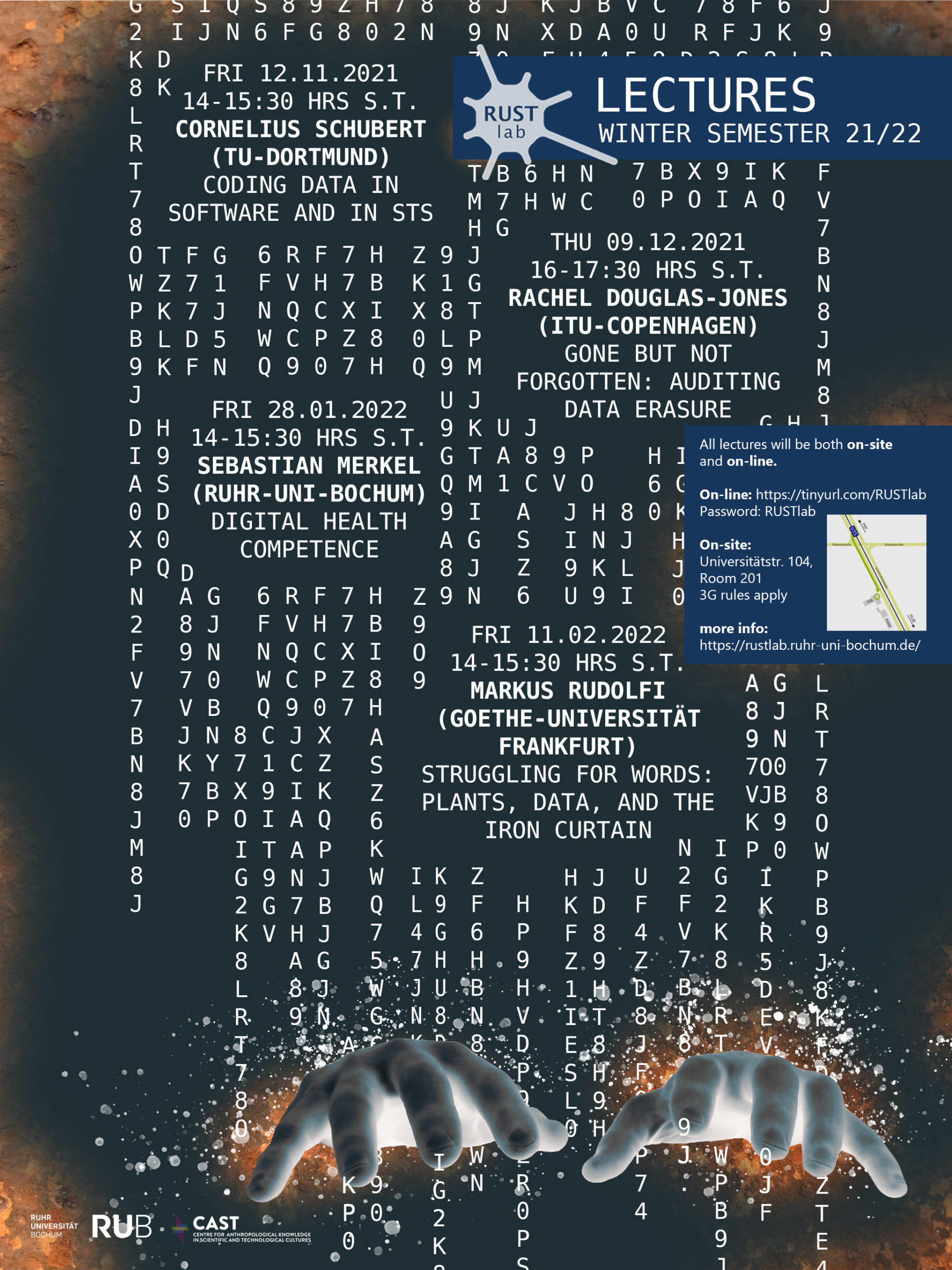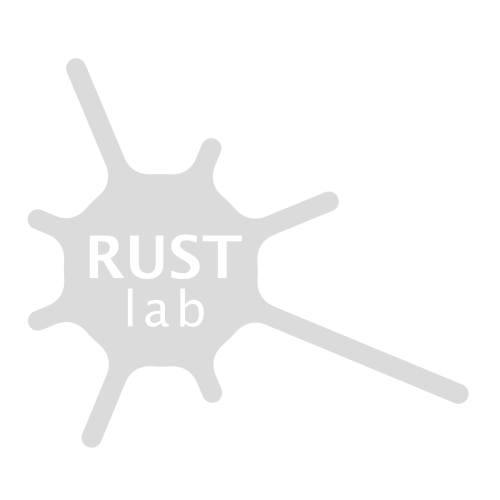RUSTlab Lectures. Come and join us on-site at the RUSTlab in Bochum or tune in live via ZOOM, Fridays from 14:00-15:30 am UTC+1 (convert time) for exiting talks and discussions around this term’s guiding theme: Data Concepts: Key terms in experimentalist data studies

All lectures will be on-site at the RUSTlab as well as live on ZOOM, Fridays from 14:00-15:30 am UTC+1 (convert time).
Address: Universitätstr. 104, 44799 Bochum, Room 201
ZOOM: https://tinyurl.com/RUSTlab
Password: RUSTlab
Data Concepts: Key terms in experimentalist data studies
Experimentalist Data Studies are explorations of how to engage proactively with more-than-digital data for the purpose of collective intervention across differences into current public concerns. This embraces both practical arrangements and rearrangements of data, data tools, data infrastructures and data visualisations as well as of concepts and imaginaries. Experimentalist Data Studies are participatory, both driven by and living off of the frictions generated when differences come together: different organisations, different disciplines, different practises, different discourses, etc. It feels at home in Science & Technology Studies engagements with the digital, and vocabularies in the vicinity of Actor-Network Theory and American Pragmatism mobilize the understanding and development of Experimentalist Data Studies.
Over the past year, the RUSTlab lectures (SoSe21, WS20/21) have engaged with digital data in different facets: We have explored counter-narratives with data (Delgado; Schütz/Su), citizen science (Østerlund) and museum data collections as object of heterogeneous stakeholder collaboration (Luther). We attempted to localize and situate data to know what it takes to extract them (Eggel; Galanova; Mewes), archive them, index them, trace and connect them (Hall), how data infrastructures (Rothöhler, Sprenger & Sørensen) and software maintenance work in practice (Ojala), and with the methods for reflecting data methods (Lippert/Mewes). We have attended to the ontologies and topologies of data: “what are data?”, we asked to broaden our understanding of what data can be(come), and “where” are they locally, specifically, physically (Bogusz/Marres).
In the meantime, the lab has engaged in developing its own capacities further by employing digital methods in different contexts and with different goals, e.g., teaching, research (see recent podcast and youtube video by lab member Laura Kocksch), public engagement.
This term we go back to the concepts that find digital data to be occasions for experimentalist intervention. We examine experiments with data in various contexts, viewing them as situations that prolong, enrich, contest, provoke and facilitate “encounters of difference” (cf. Bogusz 2018). Such experiments are capable of allowing participation in knowledge production, but also allow to widen the ethnographic process. We argue, it is in experiments that ethnographic data research reaches “critical proximity” with data and digital technologies (Latour 2004, Birkbak et al. 2015).
This term, we will explore further engagements with data that inspire Experimentalist Data Studies: “On Coding Data in Software and STS” (Cornelius Schubert), on “Gone but not Forgotten: Auditing Data Erasure” (Rachel Douglas-Jones), on “Digital Health Competencies” (Sebastian Merkel), and on “Struggling for words: Plants, Data and the Iron Curtain” (Markus Rudolfi). We invite speakers and discussants, friends and visitors of the RUSTlab to join us in discussing some of these and other questions in our RUSTlab Lectures over the winter term 21/22. Our discussions always rely on original empirical research, and will discuss data as they figure in the fields of.
Download the PDF file of this text.
For more information, including PDFs and posters of previous lectures, visit here.
